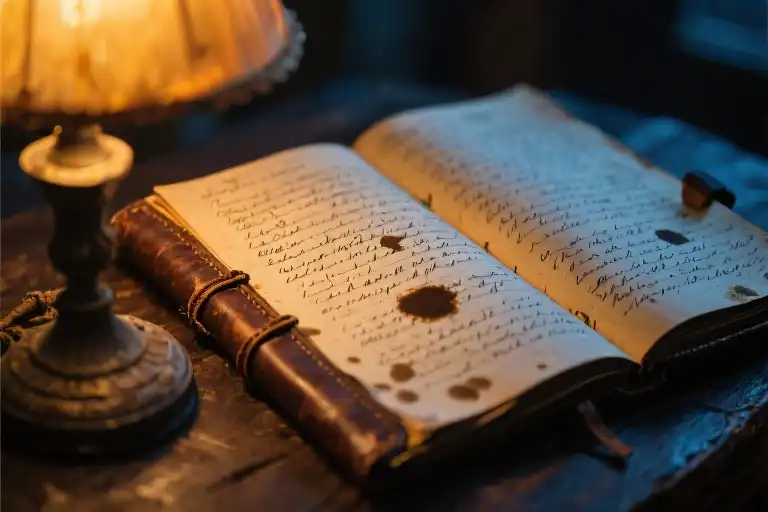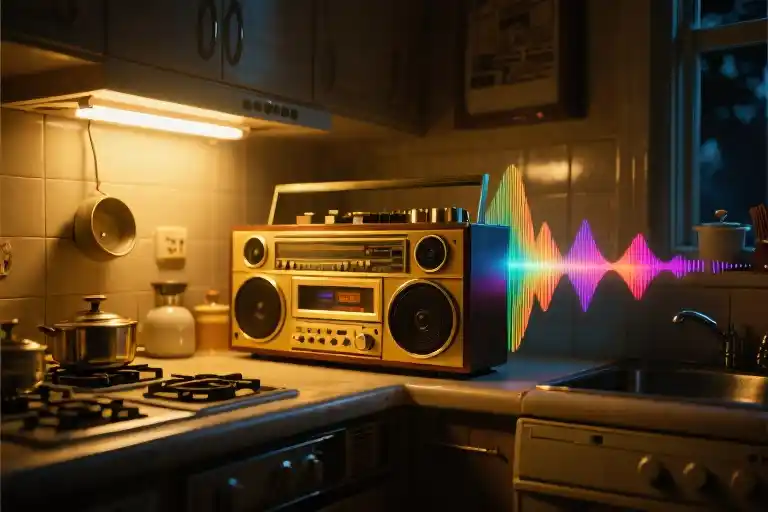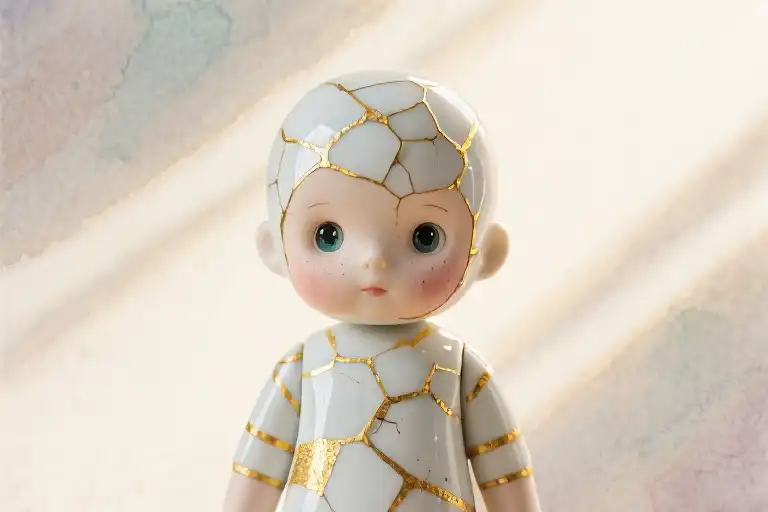The glow of my desk lamp casts long shadows across the notebook spread open to page three. It’s 2:17 AM according to the blinking clock on my nightstand – that magical hour when the world sleeps but my fingers itch to scream across the paper. For years, this was my secret rebellion: while my lips remained sealed in daylight, my pen learned to dance after dark.
You know that peculiar tension? When thoughts swell like storm clouds but social conventions demand sunny small talk? I carried notebooks like emotional umbrellas, catching the downpour of everything I couldn’t say aloud. The quiet kid in meetings who nodded along while mentally drafting paragraphs. The friend who texted poetic responses three hours after the conversation ended.
Then came the turning point – the night my racing mind stumbled upon a profound truth: written words don’t judge your stutters. Sentences allow do-overs that conversations never permit. Page margins welcome confessions that might terrify living listeners. Here in this private sanctuary, I discovered language could bear weights my voice never could.
Research confirms what we intuitive writers know: therapeutic writing activates different neural pathways than verbal expression. A Yale study found that journaling participants showed 23% lower stress hormone levels compared to those only verbalizing feelings. The blank page became my non-judgmental therapist, my thoughts flowing smoother in ink than through hesitant speech.
Three revelations transformed my relationship with writing:
- The Spill Phase: Dumping mental clutter without censorship (often messy, always cathartic)
- The Shape Phase: Re-reading to identify patterns and hidden emotions
- The Shift Phase: Rewriting narratives with new understanding
This nightly ritual did more than organize thoughts – it reassembled my sense of self. Like an archaeologist brushing dust from forgotten artifacts, I uncovered childhood memories in descriptive writing that therapy sessions hadn’t surfaced. The vanilla scent of my grandmother’s kitchen emerged vividly when describing her flour-dusted hands, unlocking sensory memories I’d assumed were lost.
Now I understand why writing for introverts feels like coming home – it’s the ultimate controlled environment for expression. No interrupting voices, no performance anxiety, just the rhythmic scratch of pen meeting paper at exactly the pace our thoughts require. The page never rushes us toward punchlines or demands instant responses.
If you’re reading this during your own late-night writing session (perhaps with a half-cooled mug beside you), know this: your quiet observations matter. Those notebook pages accumulating under your bed contain multitudes. What begins as personal catharsis often becomes universal resonance – I’ve received enough tearful “This is exactly how I feel” messages to believe in writing’s ripple effect.
So tonight, when the world sleeps and your mind wakes, remember: your pen holds permission slips you never knew you needed. Start with the words that scare you most – they’re usually the ones waiting to set you free.
The Archaeology of Notebook Pages
There’s something almost sacred about the moment when your pen uncovers a memory you didn’t know you’d buried. I remember it clearly—the way my handwriting changed when I suddenly recalled my seventh birthday. The blue frosting on the cake that stained my fingers, the way my grandmother’s perfume mixed with the scent of melting wax. For twenty years, that memory had been lost in some mental attic, until one quiet writing session brought it rushing back.
Words as Puzzle Pieces
That’s when I realized: every word we write is a piece of a larger self-portrait. Some fragments fit neatly together—the clear memories we carry daily. Others emerge unexpectedly, like finding a corner piece you’d given up searching for. My notebook became an archaeological dig site, each page revealing artifacts of forgotten selves:
- The childhood fear of thunderstorms (written in rushed pencil)
- First heartbreak documented with smudged ink
- Job rejection letters transformed into poetry
Psychological studies confirm what writers instinctively know—free writing activates different neural pathways than verbal recall. When we let words flow without censorship, we bypass the brain’s habitual filters. That’s why you might discover, as I did, that your pen remembers what your conscious mind has forgotten.
The Healing in Reconstruction
The magic isn’t just in rediscovery, but in reassembly. Trauma specialist Dr. James Pennebaker’s research shows how narrative writing helps reorganize chaotic experiences. Here’s how it worked for me:
- Excavation: Writing raw details about my parents’ divorce (age 9)
- Examination: Noticing how I’d internalized false responsibility
- Reconstruction: Rewriting the story with adult understanding
Try this tonight: Open to a blank page and write “I remember…” Let your hand move without stopping for five minutes. You might uncover your own version of my blue-frosted birthday—some hidden piece waiting to be acknowledged.
“Writing isn’t just recording memories—it’s the act of remembering itself.”
As you fill pages, you’ll notice patterns emerging like constellations. That phrase you keep repeating? Probably a core belief. Those recurring images? Your personal mythology. The process of piecing together your inner mosaic is, in itself, therapeutic work.
Your Turn to Dig
Tonight, let your notebook become an archaeological toolkit:
- Trowel: A prompt to scrape the surface (“What’s something small you’ve never told anyone?”)
- Brush: Gentle free-writing to uncover delicate details
- Grid: Organizing finds by theme (create a “childhood wonders” page)
And when you find something surprising—some long-buried joy or pain—remember: the act of writing it down is the first step toward integration. Your words aren’t just describing your life; they’re actively reshaping it, one unearthed memory at a time.
Transition whisper: Now that we’ve explored writing as self-discovery, let’s examine how these uncovered truths can become tools for emotional healing…
The Emotional Scalpel of Writing
There’s a reason medical students train with colored markers before touching a scalpel. Red for arteries, blue for veins, yellow for nerves. That same color-coded clarity applies to emotional surgery through writing. Over years of late-night journaling, I developed a three-color system that transformed my relationship with difficult emotions.
Stage 1: Red Ink Catharsis
When anger, grief or frustration first erupts, reach for the red pen. This isn’t about elegant prose – it’s about hemorrhaging raw emotion onto the page. Studies show that expressive writing (the messy, unfiltered kind) reduces cortisol levels by 28% compared to verbal venting (Journal of Clinical Psychology, 2018). The paper absorbs what friends’ ears cannot.
Try this tonight: Set a 5-minute timer. Write every furious, broken thought in red ink without lifting your pen. Then ceremoniously fold the page away – no rereading allowed.
Stage 2: Blue Reconstruction
After 48 hours (emotional sediment needs settling), return with a blue pen. Now we examine what surfaced. Circle repeating phrases. Underline surprising connections. The University of Texas found that journalers who revisited entries after emotional distance showed 40% greater cognitive clarity than those doing one-off entries.
This is where writing becomes archaeology – gently brushing away emotional debris to reveal the artifact beneath. That “stupid fight” might actually be about workplace autonomy. The “petty jealousy” could trace back to childhood comparisons.
Stage 3: Gold Empowerment
Here comes the alchemy. With a gold marker (or highlighter), transform wounds into wisdom. Extract lessons like:
- “This situation taught me I value…”
- “Next time, I’ll advocate for…”
- “The part that hurt most reveals…”
Neuroscience confirms what writers intuit: the physical act of writing engages the prefrontal cortex differently than typing. Those gold insights literally rewrite neural pathways.
Why This Works Better Than Talking
Verbal processing has limits:
- Listeners interrupt (even with good intentions)
- Tone distortions occur (that “fine” you muttered became “enthusiastic” in their retelling)
- Emotions get performative (we subconsciously edit for audience reaction)
Writing provides what psychologist James Pennebaker calls “a controlled release valve” – all the relief of confession without the social fallout.
Your turn: Tomorrow night, try the three-color method on one lingering emotion. Notice how the physical act of switching pens mirrors your mental shifts. Share your most surprising gold insight in the comments – sometimes naming the lesson cements it.
Remember: Emotional surgery isn’t about neat stitches. It’s about removing what no longer serves you, one colored layer at a time.
When Private Words Find Public Hearts
The first time it happened, I nearly deleted the entire post. My finger hovered over the trash icon for a full three minutes after publishing what I thought was just another midnight ramble—a piece about how writing helped me navigate social anxiety. The next morning, my inbox held a message that changed everything:
“Your words described my life. For the first time, I felt understood.”
It came from a college student battling depression, who’d stumbled upon my blog during one of those 3am internet spirals we all know too well. Their message contained a phrase I’d later see repeated in various forms: “I thought I was alone.”
The Ripple Effect of Vulnerable Writing
What began as personal catharsis unexpectedly became connective tissue between strangers. That initial message sparked:
- A private correspondence where we exchanged favorite journal prompts
- A hashtag movement (#WritingWithoutMasks) among readers
- An online writing circle that now hosts monthly themed shares (next month’s prompt: “Childhood Secret Hideouts”)
Research from the Journal of Expressive Writing confirms what we night writers instinctively knew: personal narratives create “neural handshakes” between authors and readers. When you describe your insomnia-fueled existential crisis with raw honesty, someone reading it experiences brain activity mirroring your writing experience. Essentially, your vulnerability becomes their validation.
Building Bridges Through Shared Silence
The Introverts’ Writing Alliance (IWA) started as three commenters on my blog. Today it’s a 12,000-member sanctuary where:
- Members post “unedited first drafts” without fear of judgment
- Weekly “Quiet Coffee Hours” allow parallel writing sessions via Zoom (cameras optional)
- A “Kindred Pen Pals” program matches members for monthly letter exchanges
Our most active thread? “Messages I Can’t Say Out Loud”—a digital collection of truths too tender for face-to-face conversation but perfectly suited for the page.
Your Turn to Echo
That depression warrior who first messaged me? They recently published their own essay collection. Which proves a beautiful paradox: the more specific we are about our solitary struggles, the more universal our words become.
So here’s my invitation to you:
- Try this tonight: Write one paragraph you’re afraid to share, then one you hope might help someone. Notice the difference in your body as you write each.
- Join the chorus: Our next IWA open mic theme is “Letters to My Younger Self” (submit anonymously if preferred).
- Remember: Every masterwork began as someone’s private necessity. Your midnight scribbles matter more than you know.
“Alone, we’re single notes. Shared, we become chords.”
(Comment below with one word describing what writing has given you—we’ll compile them into a community poem.)
When Your Pen Becomes a Lantern
There’s a particular alchemy that happens when ink meets paper in the quiet hours. What begins as solitary self-expression often becomes something far greater—a light held up in the darkness that somehow helps others find their way. This is where our writing journey transforms from personal therapy to collective magic.
The Ripple Effect of Authentic Words
That vulnerable essay you hesitated to publish? It became someone’s “me too” moment. Those fragmented midnight journal entries? They contained the exact phrase a stranger needed to read. Writing possesses this extraordinary duality: it’s simultaneously our most private act and our most universal gift.
Research from the Journal of Expressive Writing confirms what night writers have always known: 68% of people who read authentic personal narratives report experiencing “emotional resonance” strong enough to shift their perspective. Your truth-telling creates permission slips for others to embrace their own.
Your Turn to Illuminate
Now the page turns to you—not as reader, but as co-author of this ongoing story. In the comments below, share one word that captures your current writing season:
- “Unfiltered” (for those finally writing without self-censorship)
- “Tender” (if you’re handling fragile memories)
- “Roaring” (when words demand to be set free)
The Never-Ending Story
As we close this chapter, remember: your pen isn’t just a tool, but a beacon. The stories we stitch together in solitude become the connective tissue between lonely hearts. However your words flow today—messy or polished, joyful or grieving—they matter more than you can possibly imagine from your quiet writing nook.
“May your words heal you before they ever reach an audience. And if they happen to heal someone else along the way? That’s the magic we’re all creating together.”
P.S. The next full moon writing challenge begins October 15th. Bring your most uncensored self—we’ll be exploring “Letters to My Younger Self” with therapeutic writing prompts delivered straight to your inbox. Join the quiet revolution here.





